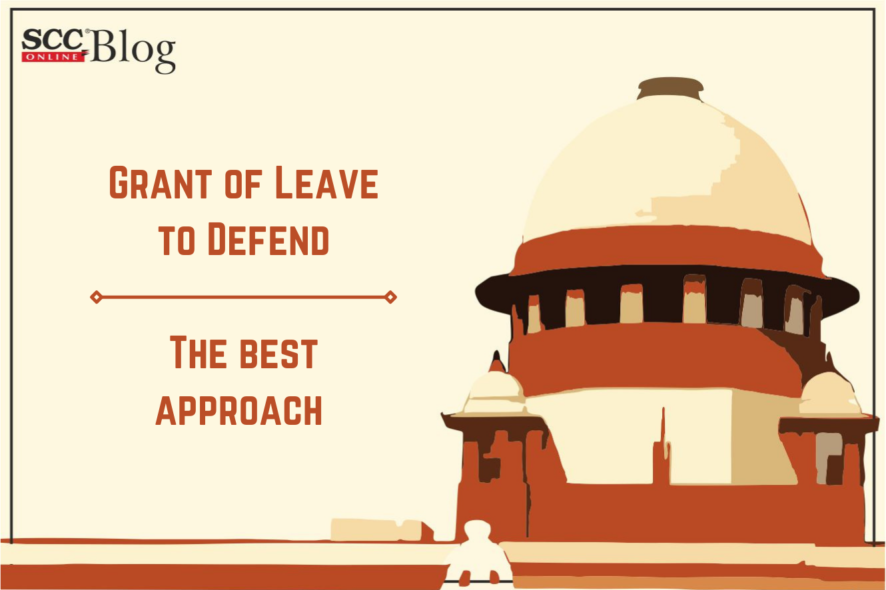Supreme Court: The bench of Vineet Saran and Dinesh Maheshwari*, JJ has explained the law relating to grant of unconditional leave to defend and held that while dealing with an application seeking leave to defend, it would not be a correct approach to proceed as if denying the leave is the rule or that the leave to defend is to be granted only in exceptional cases or only in cases where the defence would appear to be a meritorious one.
The Court observed that , generally, the prayer for leave to defend is to be denied in such cases where the defendant has practically no defence and is unable to give out even a semblance of triable issues before the Court. It, however, explained the four eventualities where leave to defend may be granted:
- if the defendant satisfies the Court that he has substantial defence, i.e., a defence which is likely to succeed, he is entitled to unconditional leave to defend
- where the defendant raises triable issues indicating a fair or bonafide or reasonable defence, albeit not a positively good defence, he would be ordinarily entitled to unconditional leave to defend.
- where the defendant raises triable issues, but it remains doubtful if the defendant is raising the same in good faith or about genuineness of the issues, the Trial Court is expected to balance the requirements of expeditious disposal of commercial causes on one hand and of not shutting out triable issues by unduly severe orders on the other. Therefore, the Trial Court may impose conditions both as to time or mode of trial as well as payment into the Court or furnishing security.
- where the proposed defence appear to be plausible but improbable, heightened conditions may be imposed as to the time or mode of trial as also of payment into the Court or furnishing security or both, which may extend to the entire principal sum together with just and requisite interest.
Thus, it could be seen that in the case of substantial defence, the defendant is entitled to unconditional leave; and even in the case of a triable issue on a fair and reasonable defence, the defendant is ordinarily entitled to unconditional leave to defend. In case of doubts about the intent of the defendant or genuineness of the triable issues as also the probability of defence, the leave could yet be granted but while imposing conditions as to the time or mode of trial or payment or furnishing security. Thus, even in such cases of doubts or reservations, denial of leave to defend is not the rule; but appropriate conditions may be imposed while granting the leave.
Further, it is only in the case where the defendant is found to be having no substantial defence and/or raising no genuine triable issues coupled with the Court’s view that the defence is frivolous or vexatious that the leave to defend is to be refused and the plaintiff is entitled to judgment forthwith.
The Court, however, clarified that in the case where any part of the amount claimed by the plaintiff is admitted by the defendant, leave to defend is not to be granted unless the amount so admitted is deposited by the defendant in the Court.
Therefore, it was held that while dealing with an application seeking leave to defend, it would not be a correct approach to proceed as if denying the leave is the rule or that the leave to defend is to be granted only in exceptional cases or only in cases where the defence would appear to be a meritorious one. Even in the case of raising of triable issues, with the defendant indicating his having a fair or reasonable defence, he is ordinarily entitled to unconditional leave to defend unless there be any strong reason to deny the leave.
“It gets perforce reiterated that even if there remains a reasonable doubt about the probability of defence, sterner or higher conditions as stated above could be imposed while granting leave but, denying the leave would be ordinarily countenanced only in such cases where the defendant fails to show any genuine triable issue and the Court finds the defence to be frivolous or vexatious.”
[BL Kashyap v. JMS Steels and Power Corporation, 2022 SCC OnLine SC 59, decided on 18.01.2022]
*Judgment by: Justice Dinesh Maheshwari



